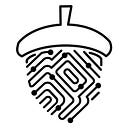What was the #TeensInAI19 Accelerator all about?— Ahana Chakraborty
From 19–30th August, I attended an AI accelerator. The application process included writing a couple of short essays as well as completing a maths test and having an interview. In the two weeks leading up to the accelerator, Elena sent all the teens an article to read and a video to watch on AI every day.
The first three days were hosted at Accenture, Liquid studio. First, we were put into teams based on our personalities. We then had to decide on what challenge we wanted to tackle. The three UN global goals that we were told to focus on were, health and wellbeing, quality education and climate change. However, we were allowed focus on any of the others if we wanted to. My team decided to focus on quality education.
For the next few days we focused on design thinking. We thought about what aspects of quality education we were interested in and which ones we could solve. We decided to try and solve the problem of kids not having access to a school. This seemed achievable since one of my team mates used to live in India and this problem is frequently found there. We thought about making an app to teach basic English and numeracy. However, we ran into the problem of how we would get this app to the children. After doing some research, we found out that phones in India are very cheap and so is data.
We carried on working on this idea for the next couple of days, while still at Accenture. After a couple of days, however, we discovered that there was an entire competition (https://learning.xprize.org/prizes/global-learning/teams/onebillion) dedicated to solving the same problem that we were trying to solve. This is when we decided that there were too many other companies doing the same thing we were attempting to do, and so we decided to pivot slightly.
On the fourth, fifth and seventh days we were hosted at Wayra. We were a bit stuck on what to do as we wanted to stick to quality education but try a different aspect. Elena informed us that she knew the CEO of Montessori on LinkedIn and that she would help us get in touch with her if we wanted to make something for toddlers in Montessori. We decided to make something for them. Later that day, we video chatted with the CEO and asked her what she would like for the toddlers and to what extent they taught problem solving skills to their toddlers. She told us that they were taught very few problem solving skills and they had no exposure to digital devices. She also told us that any app that we created would have to have some physical aspect. So, we started brainstorming on what our app and physical aspect would be.
On the fifth day we finally had an idea that was achievable. We decided to make an app to teach toddlers problem solving skills integrated with maths and English in a gamified way. This app would come with a teddy which would listen to the child say the words and ask the child words similar to the ones that they struggle on. We spent the majority of the fourth day working on our design thinking. We wanted our app to give the child a personalised learning experience.
Over the next three days we continued to work on our idea. One of the challenges we faced was with ethics. If our teddy listens to the child then it might pick up sensitive information. After thoroughly discussing this issue we decided to make the teddy optional. This way, you would be able to buy the app with or without the teddy. By buying the teddy, they have accepted the risk of sensitive data being stored. This is how we overcame this challenge.
For the last two days we worked on our demo day pitch. I made the pitch deck on the 6th day so all we had left to do was practise pitching. On demo day there would be 3 minutes to pitch and 2 minutes for the judges to ask questions so we practised accordingly. We had to find ways to make our pitch more succinct and to not read from the PowerPoint. We ended up changing our pitch deck slightly as we practised pitching.
On demo day, all the teams had to pick a number out of a hat to determine when they would pitch. We ended up pitching first. We pitched in front of lots of important judges, such as Kate Rosenshine (Head of Data and AI in Microsoft), Alejandro Saucedo (Engineering director in Seldon) and Paul Trueman (SVP in Mastercard).
Find our final pitch deck here.
By Ahana Chakraborty
